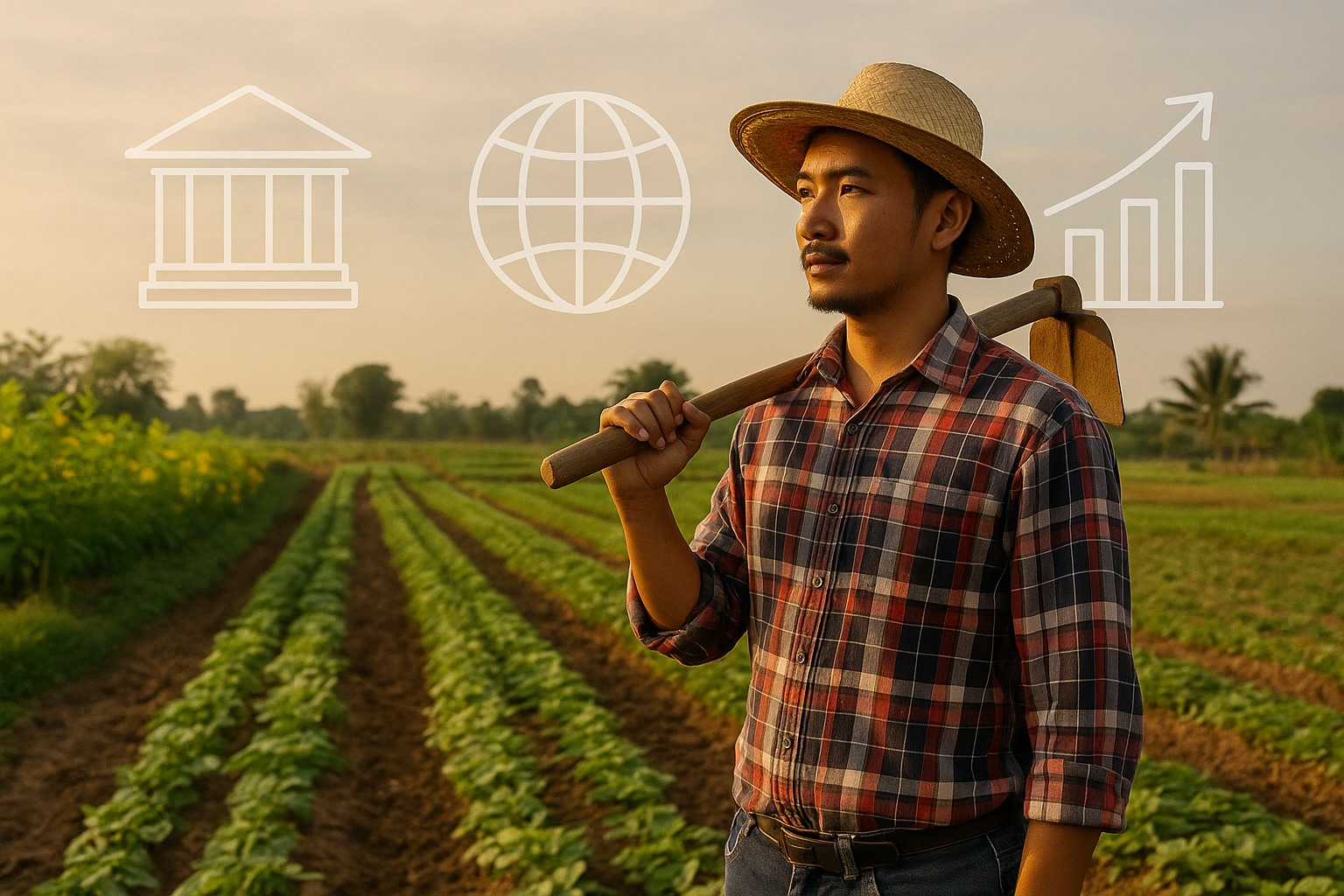🌱 The Farmer: The Unsung Architect of Civilization
Why Farmers Are the Cornerstone of Economies, Food Security, and the Future of Our Planet
Civilization Exists Because of Farmers
Remove every CEO, influencer, or software engineer tomorrow, and society would survive. Remove farmers, and civilization collapses in weeks. The farmer isn’t just a worker in a field—they are the engineer of food systems, the steward of land, and the first link in every global supply chain. Yet, modern culture often overlooks their strategic importance.
1. Farmers as Guardians of Food Security
Without farmers, there is no food. It’s that simple. But in a globalized economy where most consumers are disconnected from agriculture, this fact gets lost.
- Stability Through Abundance: Consistent agricultural output prevents food shortages that can destabilize entire nations.
- Buffer Against Global Shocks: Local farmers reduce dependence on fragile global supply chains—critical during crises like pandemics or wars.
- Nutrition and Public Health: Farmers determine the diversity and quality of food available—affecting population health for generations.
📈 Historical Insight: Every major social collapse—from ancient Rome’s decline to modern unrest—was preceded by agricultural breakdowns or food insecurity.
2. Economic Engines in Disguise
Farmers don’t just feed us—they fuel economies.
- Employment: Agriculture remains the largest employer globally, especially in emerging markets.
- Value Chains: Every crop harvested feeds logistics, processing, packaging, retail, and export industries.
- Rural Development: Vibrant farms prevent rural depopulation, keeping communities and cultures alive.
- Export Power: In nations like Brazil, the U.S., and France, farmers drive a significant share of GDP through food exports.
📈 Example: The wine grape sector in France generates over €11 billion annually—not including the downstream tourism and hospitality sectors it sustains.
3. Farmers as Environmental Stewards
Farmers manage half of the world’s habitable land. Their decisions affect biodiversity, carbon storage, and water cycles.
- Regenerative Practices: Cover crops, reduced tillage, and biodiversity strips rebuild soil and lock atmospheric carbon.
- Water Management: Efficient irrigation reduces strain on freshwater resources.
- Habitat Protection: Farms that integrate hedgerows, pollinator strips, and rotational grazing support ecosystems rather than destroy them.
4. Cultural and Social Importance
Farming isn’t only about food—it’s identity and heritage.
- Cultural Traditions: Vineyards in Italy, rice paddies in Vietnam, and maize farms in Mexico are cultural touchstones as much as economic ones.
- Community Stability: Farmers anchor rural areas, preserving languages, customs, and community ties.
- Generational Knowledge: Skills passed down through families carry centuries of local adaptation and innovation.
📖 Perspective: Every major cuisine, festival, and tradition is rooted in a farmer’s work—wine harvest festivals in Europe, rice planting ceremonies in Asia, or corn festivals in the Americas.
5. The Future – Farmers as Innovators
The next revolution in agriculture won’t come from a corporate boardroom. It will come from farmers who adopt precision agriculture, regenerative methods, and direct-to-consumer marketing.
- Tech Pioneers: Drones, sensors, and AI forecasting are becoming everyday tools on progressive farms.
- Market Makers: Direct sales, CSAs, and branding allow farmers to set prices rather than accept them.
- Climate Fighters: Farmers who build soil carbon and protect watersheds directly combat climate change.
📈 Example: A small hydroponic farmer in the UAE reduced water usage by 90% while supplying premium greens to local restaurants—proving innovation thrives where stakes are highest.
6. How Society and Investors Benefit by Backing Farmers
- Stable Supply Chains: Reliable food sources reduce political and economic instability.
- Economic Growth: Investment in farming infrastructure—storage, processing, logistics—creates ripple effects across industries.
- Sustainability Leadership: Partnering with farmers accelerates adoption of practices that protect ecosystems.
- Profitability: Farms with strong management and branding outperform traditional commodity operations—delivering attractive returns.
Action Steps for Readers
- Recognize farmers as strategic partners—whether you’re a policymaker, investor, or consumer.
- Support knowledge sharing and farmer education.
- Invest responsibly in regenerative and precision management models.
- Value food properly—pay for quality, transparency, and sustainability.
Closing – Farmers Don’t Just Grow Crops. They Grow Civilization.
The farmer’s significance cannot be overstated: they feed the world, sustain economies, preserve cultures, and protect ecosystems. As global challenges intensify—climate change, population growth, resource scarcity—their importance will only grow.
🌿 The work of farmers today shapes a secure, prosperous tomorrow.


